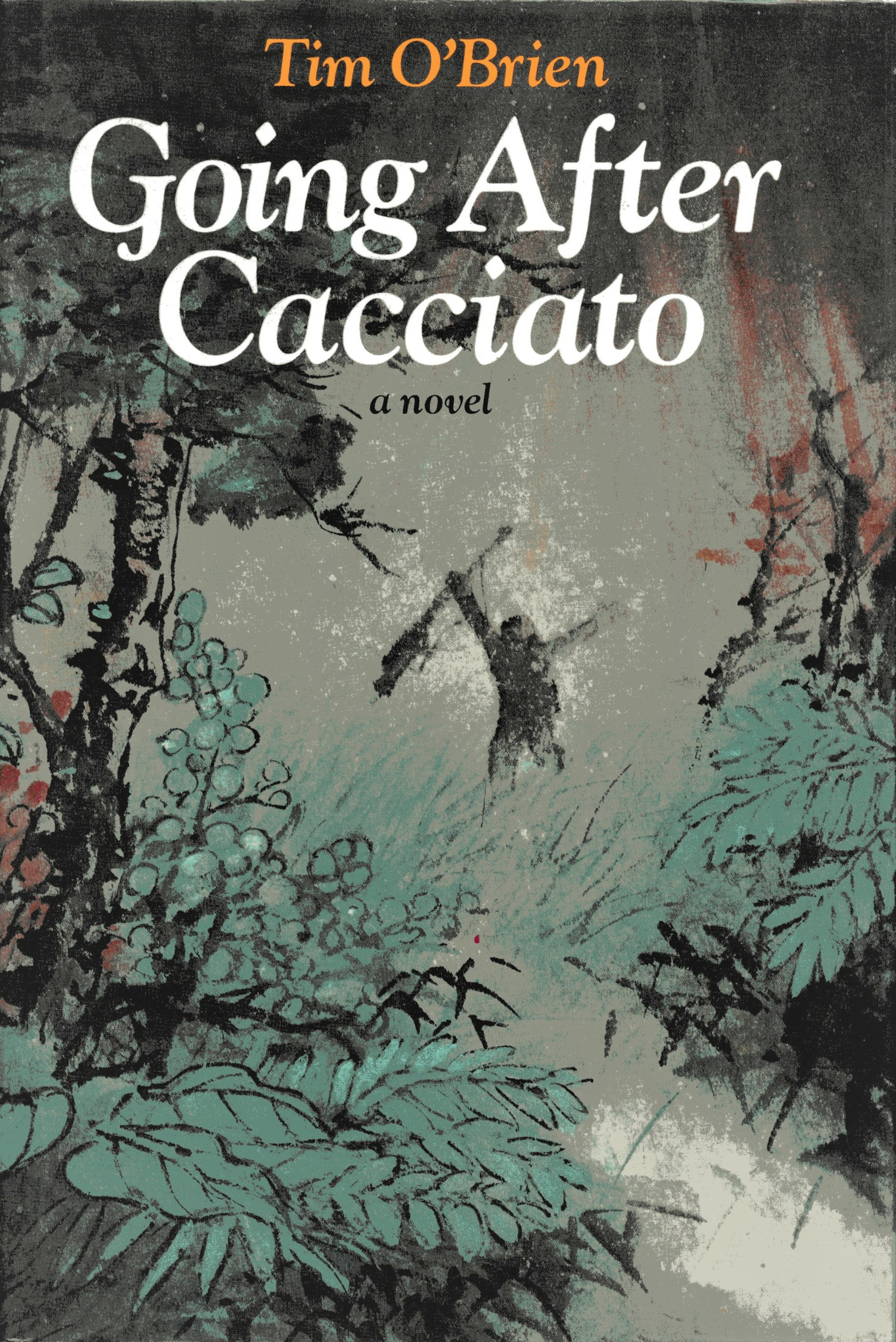Hardcover, 338 pages
English language
Published February 1978 by Delacorte Press/Seymour Lawrence.

Hardcover, 338 pages
English language
Published February 1978 by Delacorte Press/Seymour Lawrence.
In October, near the end of the month, Cacciato left the war.
"Paree," the lieutenant murmured. "So Cacciato's gone off to gay Paree—bare ass and Frogs everywhere, the Follies Brassiere. What's wrong with him?"
"Just dumb," Doc Perot said. "He's just awful dumb, that's all."
"And he's walking? You say he's walking to gay Paree?"
"That's what he claims, sir, but you can't trust—"
"Paree! Does he know how far it is?"
"Eight thousand six hundred statute miles, sir. That's what he told me—eight thousand six hundred on the nose. He had it down pretty good. Rations, fresh water, a com-pass and maps and stuff . . . He had it all doped out."
"In other words," the lieutenant said. In other words, AWOL."
When this extraordinary novel was still a work in progress, with chapters appearing in such varied magazines as Esquire, Redbook, and Shenandoah, it generated immediate pre-publication …
In October, near the end of the month, Cacciato left the war.
"Paree," the lieutenant murmured. "So Cacciato's gone off to gay Paree—bare ass and Frogs everywhere, the Follies Brassiere. What's wrong with him?"
"Just dumb," Doc Perot said. "He's just awful dumb, that's all."
"And he's walking? You say he's walking to gay Paree?"
"That's what he claims, sir, but you can't trust—"
"Paree! Does he know how far it is?"
"Eight thousand six hundred statute miles, sir. That's what he told me—eight thousand six hundred on the nose. He had it down pretty good. Rations, fresh water, a com-pass and maps and stuff . . . He had it all doped out."
"In other words," the lieutenant said. In other words, AWOL."
When this extraordinary novel was still a work in progress, with chapters appearing in such varied magazines as Esquire, Redbook, and Shenandoah, it generated immediate pre-publication excitement. One chapter was an O. Henry Award winner in 1976; another was selected for The Best American Short Stories 1977. The critic Gene Lyons in The Nation devoted a full-length essay to Tim O'Brien's remarkable achievement:
"If better realistic fiction has been written about Vietnam, I have not seen it. I find O'Brien's style irresistible in both its discipline and its amplitude. . . . The war story that O'Brien is telling now deserves our attention."
As Cacciato, pursued by his own comrades-in-arms, walks out of the jungles of Vietnam—over mountains and across continents, toward the promise of Paris—Tim O'Brien portrays both the nightmare of war and a magnificent vision of peace.